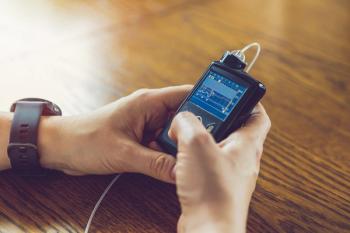
- Drug Topics December 2022
- Volume 166
- Issue 12
A Study of Immune Checkpoint Inhibitors and Complication Rates
Immune checkpoint inhibitor therapy does not appear to increase complication rates in patients undergoing dermatologic procedures.
In another ASDS presentation, Charles Puza, MD, a postgraduate dermatology resident at the University of Texas Southwestern in Dallas, shared research data on safety and complications of immune checkpoint inhibitors with dermatologic procedures during an oral abstract session.1 The objective of the study was to determine postoperative complications in patients undergoing dermatologic procedures while receiving immune checkpoint inhibitors.
“[I]n 2011, ipilimumab [Yervoy] was the first medication in this class granted FDA approval for metastatic melanoma. Since then, immune checkpoint inhibitors have continued to expand, [as well as] the indications, including squamous cell carcinoma, Merkel cell carcinoma, lung cancer, hepatocellular carcinoma, renal cell cancer, urogenital cancer, and many other rare conditions,” Puza said.
The adverse effects related to this class of medications are related to immune system activation and include colitis, hepatitis, and pneumonitis, according to the study. The safety of dermatologic procedures and postoperative complications in these patients has yet to be studied.
The current study was single center and retrospective, and it examined patients from January 2015 through June 2021, allowing for a 6-month follow-up period. All patients were actively receiving immune checkpoint inhibitors at the time of dermatologic surgery, including Mohs surgery and excisions. Biopsies or intralesional injections were not included. Puza and his colleagues continually reviewed the indications for immune checkpoint inhibitor therapy, patient demographics, and postoperative complications.
Twenty-five patients fit the criteria of the study; most were men, and the mean age was 64.3 years. Overall, the 25 patients underwent 48 dermatologic procedures ranging from excision with immediate closure to electrodesiccation and curettage. The indications for immune checkpoint inhibitors primarily included melanoma, lung cancer, bladder cancer, and bile duct cancer. Regarding procedural locations, approximately half of the patients received a procedure on the head or neck, with the other half of patients in the extremity and trunk group.
Nivolumab (Opdivo) was the most common immune checkpoint inhibitor used by patients in this study, received by 16 patients. Pembrolizumab (Keytruda) was the second most common therapy, used in 5 patients, and 3 patients received a combination of ipilimumab and nivolumab.
“Overall, complications were rare in this cohort. Again, this [study] is extremely small, but infection was identified in 2 patients and treated with oral antibiotics without complication. One patient had significant enough pain to require an emergency department visit. Neither recurrence nor postoperative bleeding [were] reported in the follow-up period,” Puza said.
“To conclude, immune checkpoint inhibitor therapy does not appear to dramatically increase the rates of complications in patients undergoing dermatologic procedures,” Puzasaid. “Although this was a small study, dermatologic surgery, including Mohs micrographic surgery, was safe and well tolerated in this small sampling of patients.”
Reference
1. Puza C, Pyle H, Srivastava D, Nijhawan R. Immune checkpoint inhibitors and dermatologic procedures: a retrospective review of safety and complications. Presented at: American Society for Dermatologic Surgery Annual Meeting; October 6-10, 2022; Denver, CO.
Articles in this issue
about 3 years ago
2022 Top News from Drug Topicsabout 3 years ago
New Approaches in Psoriasis and Psoriatic Arthritis Treatmentabout 3 years ago
Treating Skin Cancers in the Immunotherapy Eraabout 3 years ago
What’s New in Acne and Rosacea?about 3 years ago
Evaluating Chronic Itch and Quality of Lifeabout 3 years ago
Biosimilar Uptake Increases After Changes to EHRabout 3 years ago
Mental Health Telemedicine Barriers Spur Call for Reformabout 3 years ago
How Drug Shortages Are Prevented by the FDANewsletter
Pharmacy practice is always changing. Stay ahead of the curve with the Drug Topics newsletter and get the latest drug information, industry trends, and patient care tips.























